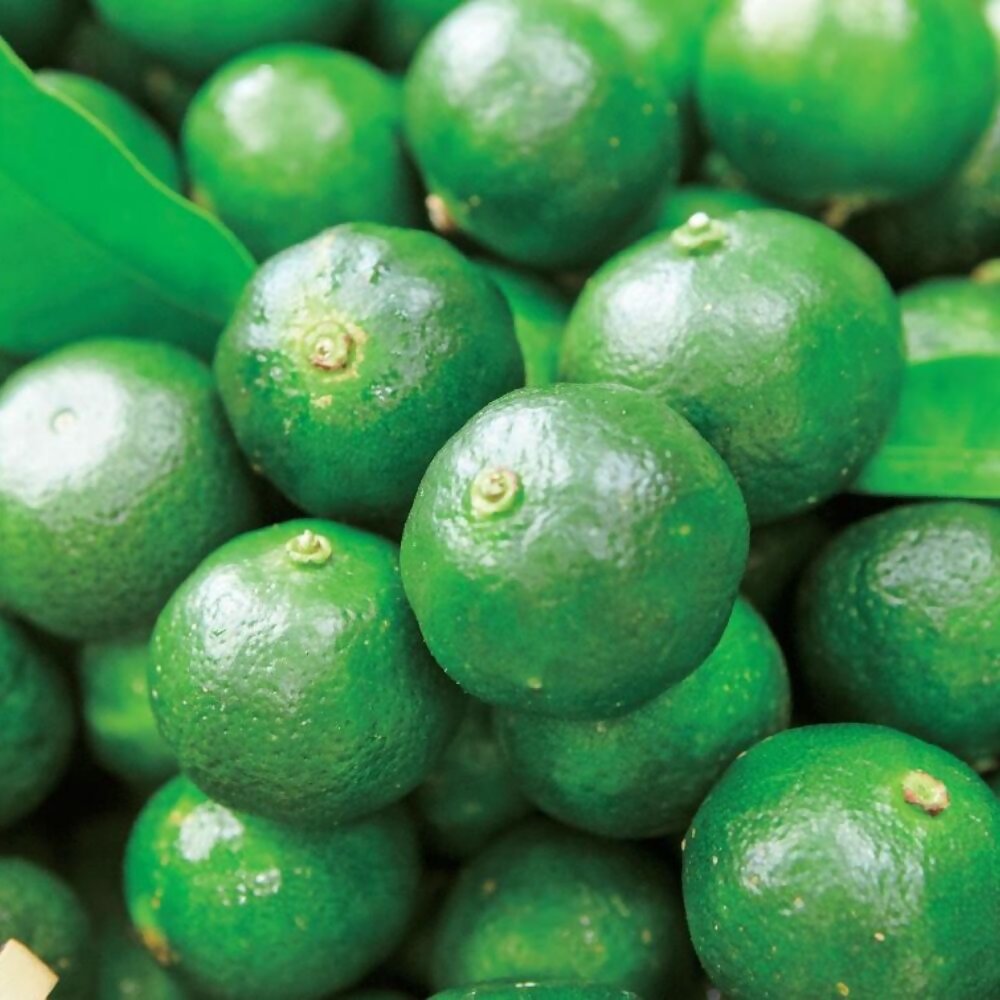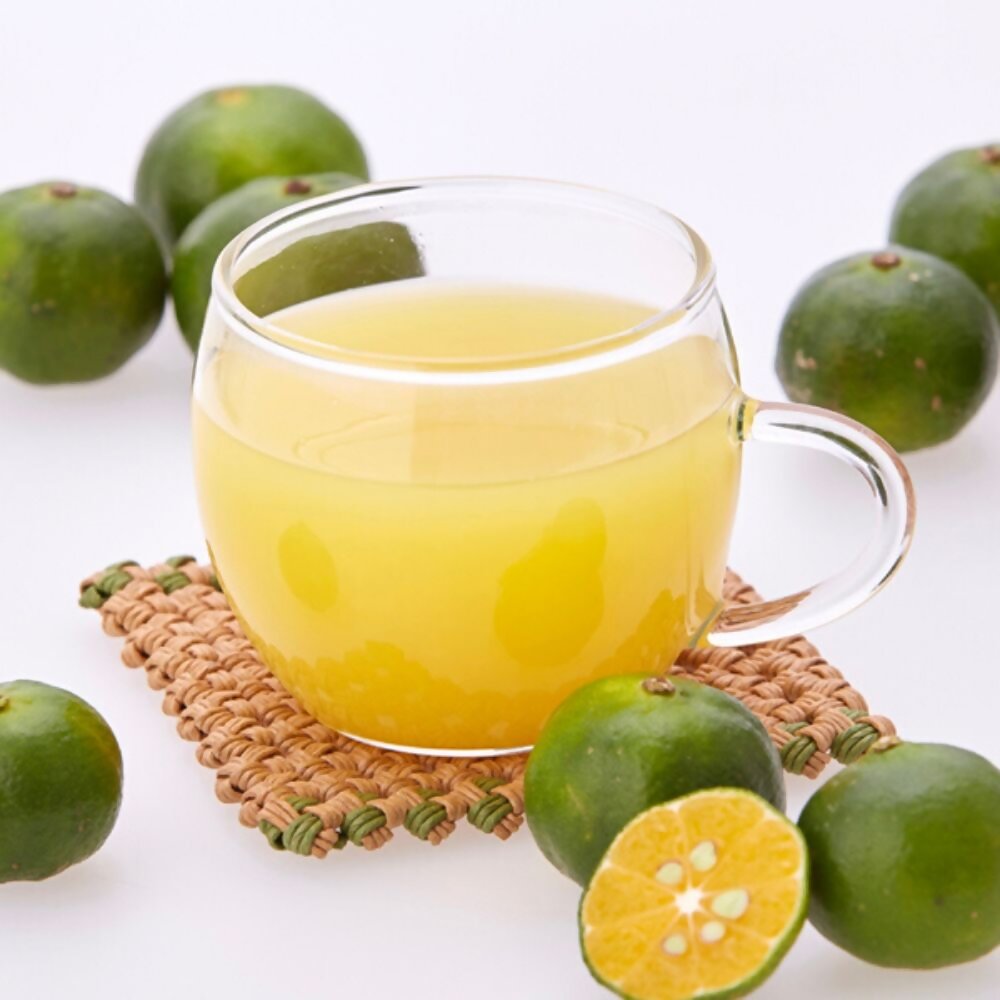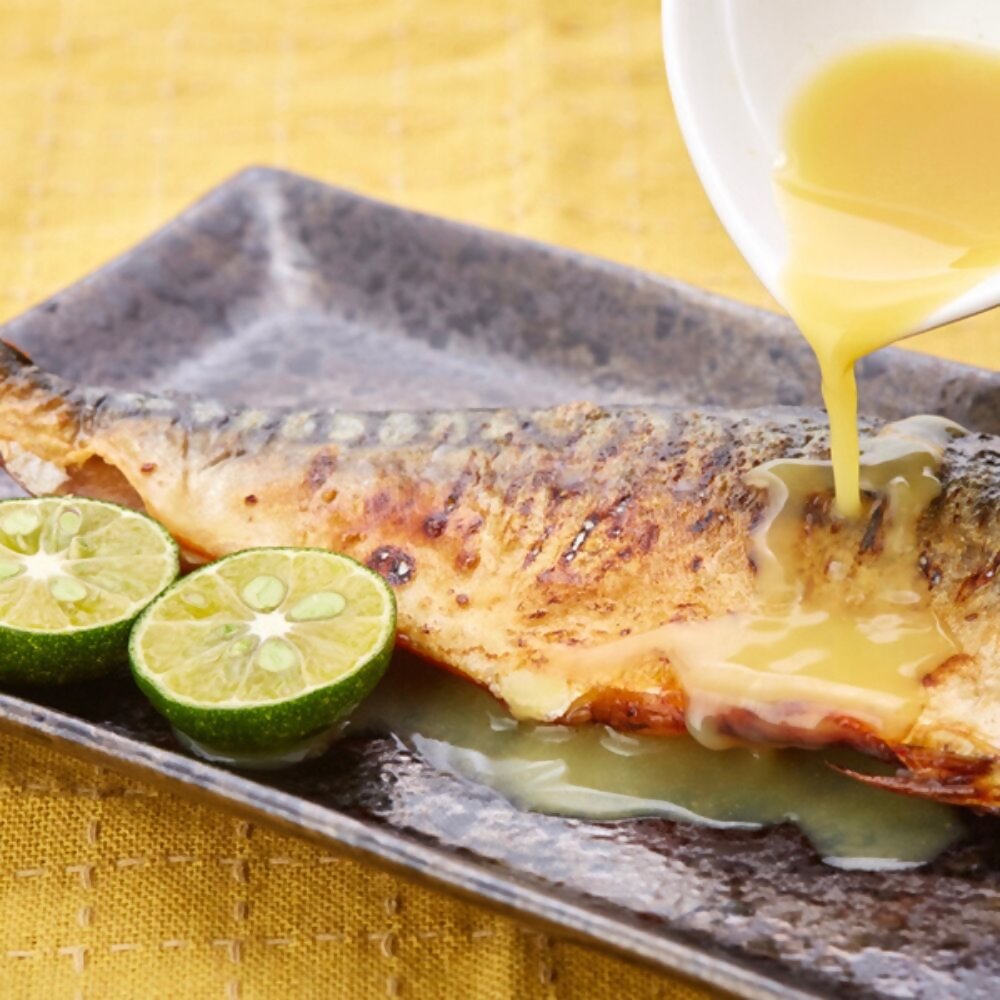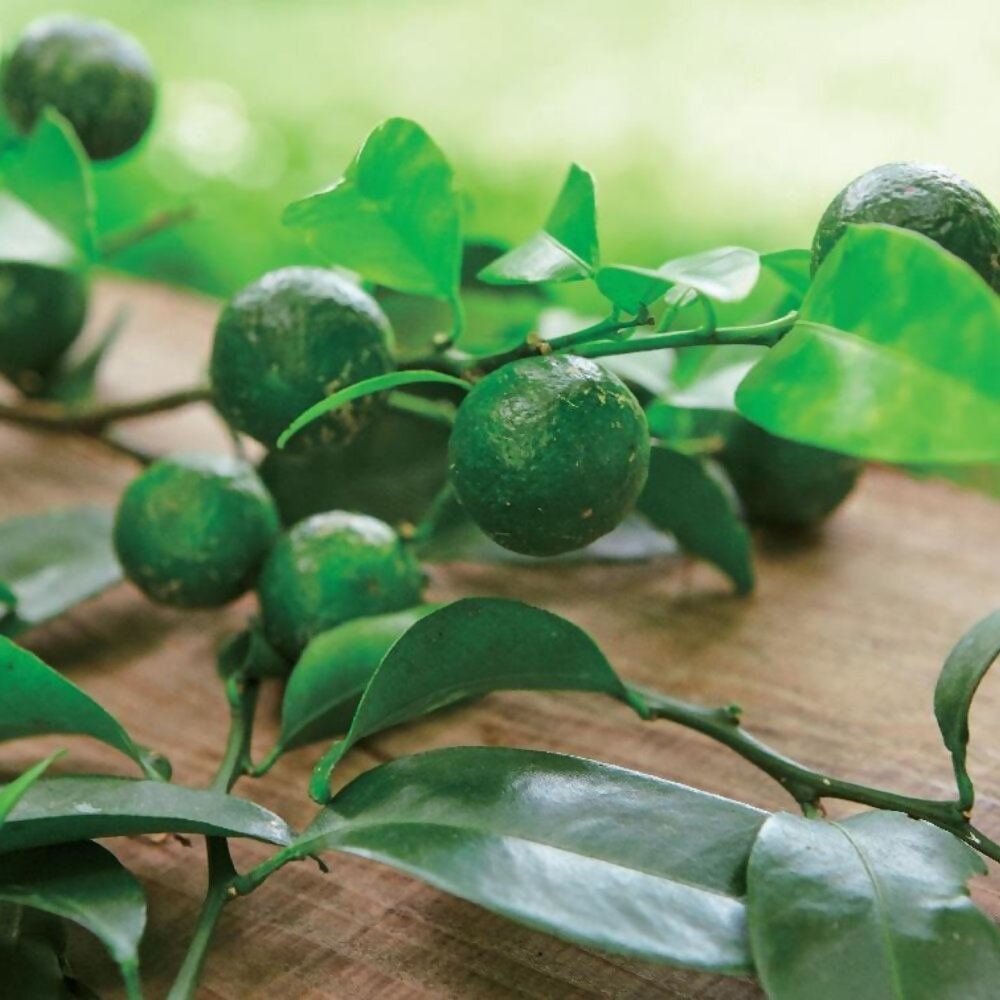Fruit of longevity
Shikuwasa citrus fruit, also known as Citrus depressa or hirami lemon, is different from lime and kalamansi. It is grown only in Okinawa and Taiwan. The majority is grown in Ogimi village in Okinawa.
Data from the World Health Organisation has shown Ogimi village to have the highest concentration of centenarians. They attribute this to the local population’s diet and lifestyle. The entire fruit, pulp and skin, is used in a variety of products from food to cosmetics and aromatherapy oils.
The fruit is harvested between August and February. Its juice, peel, and residue are processed into products that can be consumed throughout the year. For a long time, shikuwasa has been consumed in vinegars. Today, consumers enjoy the rich, refreshing, sour taste of shikuwasa in juice, concentrates, and seasonings. It is common to find shikuwasa trees growing in home gardens in Okinawa.
Nutrition
Shikuwasa has exceptional nutritional value. It contains 2.2 times more citric acid than lemon. The peel of the fruit contains high levels of flavonoids, nobiletin and tangeletin; which are studied to have benefits, such as antioxidative and anti-inflammatory effects, improving blood sugar levels, and helping to prevent cardiovascular disease among others health advantages.
This unique species is packed with vitamin C, an excellent antioxidant, citric acid that relieves exhaustion, and flavonoids that help fight against carcinogenicity, diabetes, liver disability, and melanism. Currently, research is ongoing to look into shikuwasa’s potential to battle dementia.
Research has been conducted to study the extensive nutritional properties, much of which come from active ingredients found in the fruit’s pericarp. We can share in this great discovery as modern technology has allowed for extraction methods to preserve the nutritious elements of shikuwasa.
One of the leaders of shikuwasa’s nutrifying performance would be nobiletin, a flavonoid that plants contain to protect themselves against the undesirable stimuli, such as pests or ultraviolet. Flavonoids are useful for their antioxidant effects.
Shikuwasa health benefits
This unique species is packed with vitamin C, an excellent antioxidant, citric acid that relieves exhaustion, and flavonoids that help fight against carcinogenicity, diabetes, liver disability, and melanism. Currently, research is ongoing to look into shikuwasa’s potential to battle dementia.
Research has been conducted to study the extensive nutritional properties, much of which come from active ingredients found in the fruit’s pericarp. We can share in this great discovery as modern technology has allowed for extraction methods to preserve the nutritious elements of shikuwasa.
One of the leaders of shikuwasa’s nutrifying performance would be nobiletin, a flavonoid that plants contain to protect themselves against the undesirable stimuli, such as pests or ultraviolet. Flavonoids are useful for their antioxidant effects.
Functional ingredients of shikuwasa
Prevention of increasing blood glucose and blood pressure levels
Flavonoids are studied to help prevent the constriction of blood vessels, in addition to reducing the body’s insulin resistance, hence regulating blood sugar better.
Anti-inflammatory effect
Nobiletin helps to suppress the generation of prostaglandin E2 that occurs, for example, when the skin is exposed to ultraviolet. Research has linked prostaglandin to the inflammation process and other ailments, such as macula and skin cancer.
Prevention of dark pigmentation
Nobiletin suppresses the enzyme tyrosinase; which would otherwise catalyse the production of melanin and other pigments, hence making the skin dark.
Anti-aging and arthritis relief
Flavonoids are known to help prevent the reduction of bone density and prevent osteoporosis in postmenopausal women. Meanwhile, nobiletin is studied to suppress the generation of MMPs (matrix metallopeptidases), enzymes that are implicated in cancer progression.






